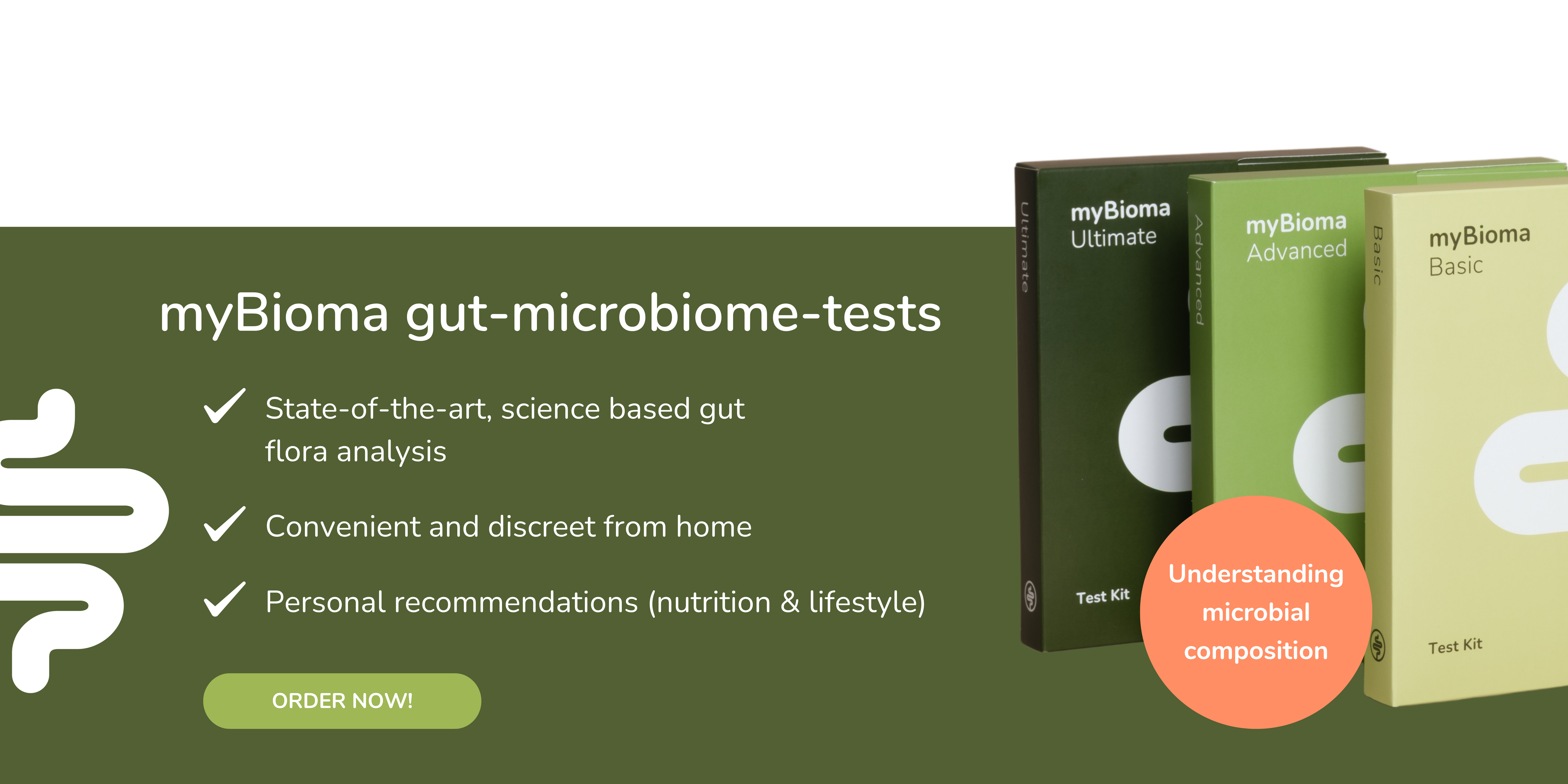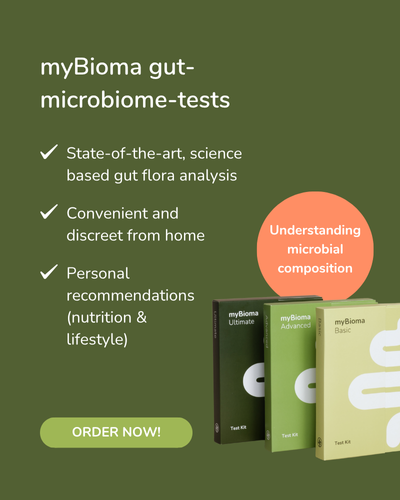In this article we are looking at what effects gluten has on a permeable intestine (“ leaky gut ”) Microbiome and Autoimmune diseases , such as Hashimoto's thyroiditis (chronic thyroid inflammation).

The molecular structure of gluten. Gliadin and glutenin are two fractions of gluten. Gluten forms when mixed with water (7).
Gluten - what is it exactly?
The name is definitely yours gluten already happened once in the last few years. But what exactly is this?
Which foods contain gluten?
gluten is a family of proteins found in Grain such as wheat, rye, spelled and barley.
Structure of gluten
The two main proteins in gluten are Glutenin and gliadin . Gliadin is responsible for most of the negative health effects.
If flour with water is mixed, the gluten proteins form sticky network that has a glue-like consistency.

Gluten is mainly found in the endosperm of grains (8).
Baking properties of gluten
This glue-like property makes the dough elastic and allows the bread to rise while baking. Likewise, this also provides one soft, fluffy texture .
Interestingly, the name derives from Gluten (English glue = glue) depends on this glue-like property of the wet dough.
Gluten and health
Gluten not only can Inflammation cause, but also a altered microbiome and one leaky gut , as well as through molecular mimicry (more on this later) directly one Autoimmunity trigger in the body.

With leaky gut - the permeable intestine - due to the dissolution of the connections in the intestinal mucosa, particles and bacteria that have no place there enter the bloodstream. This leads to inflammation (9).
Leaky gut, gluten and Hashimoto's thyroiditis - the connection
To briefly recap: At Hashimoto's thyroiditis It is an autoimmune disease, which means that the immune system attacks the body's own tissue - in this case the thyroid – attacks and as a result too few thyroid hormones are produced. This key point is important to understand why gluten can be harmful to the thyroid.
Leaky gut - cause of autoimmune diseases?
Thanks to the pioneering work of Dr. Alessio Fasano we know that Leaky gut one of Main trigger for autoimmune diseases, including Hashimoto's.
In a nutshell: At Leaky gut will be the one Intestine , especially the small intestine, permeable . This allows particles from the digestive tract to enter the bloodstream and move freely. SIBO (bacterial colonization of the small intestine), intestinal infections, antibiotics, steroids, birth control pills and stress promote the development of leaky gut.
Likewise, new research shows that spraying glyphosate (agents for weed control) on plants also makes a significant contribution to this.
This means that gluten particles now also have a free pass bloodstream , which puts the immune system on high alert to neutralize all of this.

Antibodies (reaction product of body cells to certain substances = antigens) bind to the specific protein sequences of antigens (foreign proteins that cause the body to form antibodies against itself). Although gluten, casein (protein in dairy products) and your own tissues are different, they share some of the same protein sequences. A cross-reaction occurs when your immune system cannot distinguish between these molecules (1).
How gluten can fuel Hashimoto's disease
Every time your body is exposed to bacteria, viruses, or other pathogens, your immune system remembers their structure, especially the Protein sequence so that it can recognize them in the future and defend you against intruders.
Cross-reactivity - an inattention of the immune system
However, the immune system's detection system is not foolproof. In case of Gluten , whose molecules and Protein sequences are very similar to those of the thyroid tissue, a mix-up ( molecular mimicry = imitation ) can occur and, in addition to the actual gluten particles, the body's own tissue is accidentally attacked, which leads to the development of an autoimmune disease.
Thanks to leaky gut, every time gluten and dairy are consumed, the proteins can enter the bloodstream and trigger an immune system attack. As already mentioned, due to the phenomenon of molecular mimicry, the thyroid tissue also ends up in the crosshairs.
In addition, 50% of people with gluten sensitivity experience molecular mimicry casein (a protein found in dairy products). This is called Cross-reactivity in which one reacts not only to the original trigger, but also to another trigger that is similar to the former.
Read more about the connection here: Microbiome and chronic thyroiditis.

Consuming gluten can also affect the thyroid in people with gluten sensitivity (10).
No gluten with Hashimoto's thyroiditis?
The omitting of gluten and dairy products in Hashimoto's and autoimmune diseases in general can therefore be beneficial for the recovery of the intestinal mucosa and the immune system. The intestine can repair itself, the inflammation decreases and so do the attacks on the thyroid.
Test your gut microbiome!
This again shows how important it is to take good care of yourself Microbiome to prevent diseases such as leaky gut. The residents in your intestines are happy about lots of fiber from your diet, enough water and exercise. If you want to find out how your gut microbiome is doing, then test it now with myBioma easily from home. You will receive a clear microbiome report and personal nutritional recommendations to improve your gut health. Learn more!
References
- https://www.amymyersmd.com/2017/12/gluten-blame-hashimotos/
- https://www.medicalnewstoday.com/articles/318606.php#2
- Fasano, A. (2012). “Leaky gut and autoimmune diseases.” Clin Rev Allergy Immunol 42(1): 71-78.
- Vojdani, A. (2015). “Molecular mimicry as a mechanism for food immune reactivities and autoimmunity.” Altern Ther Health Med 21 Suppl 1: 34-45.
- Cusick MF, Libbey JE, Fujinami RS. Molecular mimicry as a mechanism of autoimmune disease. Clin Rev Allergy Immunol. 2012;42(1):102–111. doi:10.1007/s12016-011-8294-7
- https://www.huffpost.com/entry/4-reasons-gluten-and-autoimmune-disease-dont-mix_b_599c7abfe4b0521e90cfb5a3
- Belton, P.S., On the elasticity of wheat gluten. J. Cereal Sci., 29: https://slideplayer.com/slide/10369118/
- https://medium.com/@junereynolds/gluten-the-mystery-substance-976c0e70d91d
- https://thenaturalthyroiddoctor.com/gluten-and-the-thyroid/
- https://justinhealth.com/hashimotos-gluten-connection/
- https://mycipc.com/microbiome-health/








